It's all about the classical music composers and their works from the last 400 years and much more about music. Hier erfahren Sie alles über die klassischen Komponisten und ihre Meisterwerke der letzten vierhundert Jahre und vieles mehr über Klassische Musik.
Total Pageviews
Monday, February 5, 2024
Barbra Streisand, Céline Dion - Tell Him (Official Remastered HD Video)
Westlife - When You Tell Me That You Love Me (Official Video)
Sunday, February 4, 2024
I Wanna Grow Old With You - Westlife
Always On My Mind - Willie Nelson (Elvis) - (Connie Talbot)
13 Songs From The 60s You Forgot Were Awesome
Saturday, February 3, 2024
Georg Philipp Telemann - his music and his life
Georg Philipp Telemann, (born March 14, 1681, Magdeburg, Brandenburg [Germany]—died June 25, 1767, Hamburg), German composer of the late Baroque period, who wrote both sacred and secular music but was most admired for his church compositions, which ranged from small cantatas to large-scale works for soloists, chorus, and orchestra.
Telemann was the son of a Protestant minister and was given a good general education but never actually received music lessons. Though he showed great musical gifts at an early age, he was discouraged by his family from becoming a professional musician, at that time neither an attractive nor a remunerative occupation. By self-teaching, however, he acquired great facility in composing and in playing such diverse musical instruments as the violin, recorder, oboe, viola da gamba, chalumeau, and clavier. In 1701 he enrolled at the University of Leipzig as a law student, but musical activities soon prevailed and were to engross him for the rest of his life.
Leipzig became the stepping-stone for Telemann’s musical career. The municipal authorities there realized that, apart from his musical gifts, the young firebrand possessed extraordinary energy, diligence, and a talent for organization. They commissioned him to assist the organist of the Thomaskirche, Johann Kuhnau, by composing church cantatas for alternate Sundays, and also gave him a position as organist at the university chapel, Neuenkirche. Telemann reorganized the collegium musicum, the student musical society, into an efficient amateur orchestra that gave public concerts (then a novelty) and became director of the Leipzig Opera, for which he also composed. Telemann’s next positions were at two princely courts: first as kapellmeister (conductor of the court orchestra) in Sorau (now Żary, Poland; 1705–08), then as concertmaster (first violinist) and later kapellmeister in Eisenach (1708–12). By playing, conducting, studying, and composing he gained the musical knowledge, practical experience, and facility in composing that were to be vital when he assumed the musical directorship of Frankfurt am Main (1712–21) and Hamburg (1721–67). In Frankfurt he was musical director of two churches and in charge of the town’s official music. As in Leipzig, he reorganized the students’ collegium musicum and gave public concerts with the group. In Frankfurt Telemann started publishing music that made him famous not only in Germany but also abroad. As musical director of Hamburg, one of the outstanding musical positions of the time, he supplied the five main churches with music, was in charge of the Hamburg Opera, and served as cantor at Hamburg’s renowned humanistic school, the Johanneum, where he also was an instructor in music. In Hamburg, too, he directed a collegium musicum and presented public concerts. In 1729 he refused a call to organize a German orchestra at the Russian court. He had also declined an offer in 1722 from municipal authorities in Leipzig to succeed Kuhnau as organist of the Thomaskirche. This proffered position, which had been promised him 17 years earlier by authorities in the event of Kuhnau’s death, manifested the high esteem in which even the young Telemann was held. (Following Telemann’s refusal, the position fell to Johann Sebastian Bach.) In addition to all his activities in Hamburg, he also supplied (by contract) the courts of Eisenach and Bayreuth, as well as the town of Frankfurt, with music and continued to publish his compositions.
master of the principal styles of his time—German, Italian, and French—he could write with ease and fluency in any of them and often absorbed influences of Polish and English music. He composed equally as well for the church as for opera and concerts. His music was natural in melody, bold in harmonies, buoyant in rhythm, and beautifully orchestrated. Profound or witty, serious or light, it never lacked quality or variety. Telemann’s printed compositions number more than 50 opuses, among them (counting each as one item) the famous collection Musique de table (published in 1733; containing three orchestral suites, three concerti, three quartets, three trios, and three sonatas); the first music periodical, Der getreue Music-Meister (1728–29; containing 70 compositions); Der harmonische Gottesdienst (1725–26; 72 church cantatas); and 36 fantasias for harpsichord.
Except for a brief journey to France (1737–38), where he was enthusiastically received, Telemann never left Germany. He married twice and had eight sons and three daughters. His first wife died young in childbirth; his second wife absconded with a Swedish officer, leaving Telemann with a debt of 3,000 taler. Apart from being a prolific composer, he was also a keen writer; his two autobiographies of 1718 and 1739 are comparatively well documented. He published a long poem after his first wife’s death, and many words in his vocal compositions came from his own pen. Especially noteworthy are Telemann’s many prefaces to collections of his music, which contain a great amount of practical advice on how his compositions (as well as those of his contemporaries) should be performed. A friend of Bach and Handel, he was godfather to Bach’s son Carl Philipp Emanuel, who succeeded as musical director of Hamburg after Telemann’s death at the age of 86.
G.P. Telemann - Wassermusik 《Hamburger Ebb' und Fluth》
Toni Braxton - Un-break My Heart (1999) Live | 4K
Sukiyaki (Kyu Sakamoto) - "We'll meet again" Orchestra Project
Friday, February 2, 2024
Begin the beguine - Fred Astaire and Eleanor Powell
A dinner concert for a cause
The Children's First One Thousand Days Coalition (CFDC), in partnership with The Manila Hotel, will present a dinner concert to raise funds for the nutrition efforts of non-government organizations helping government address malnutrition of Filipino infants during the crucial period from conception to their second birthday.
The pre-Valentine concert called "The Greatest Love of All" will be held on February 9, 6 pm, at the Tent City of The Manila Hotel.
Main performers include former press secretary Mike Toledo, former executive secretary Salvador Medialdea, and The Manila Hotel president and former Senator Joey Lina.
Other performers include Beverly Salviejo, Nina Campos, Jenny Sugay, Rachelle Rule, Rachel Verns, Pam Esquivel, Bobby Alvarez, Egay Rubiano, Jeffrey Panado, Egay Banaag, and the Adeodatus Children's Choir (Baseco) with Manila Philharmonic Orchestra. Rodel Colmenar leads the music direction, with George Sison-Tagle and Paul Dizon supervising the overall direction of the concert.
CFDC member organizations include Rotary International, Lions Club International, Kiwanis International, Junior Chamber International, The Most Worshipful Grand Lodge of Free and Accepted Masons of the Philippines, The Fraternal Order of Eagles - Philippine Eagles, Knights of Columbus, Knights of Rizal, Save the Children Philippines, World Vision Philippines, Brotherhood of Christian Businessmen and Professionals, Philippine League of Government and Private Midwives, Crusade Against Violence, and others.
In tandem with government, the CFDC was formed to confront a serious problem troubling the Philippines: malnutrition during a child's First One Thousand Days of Life – a very critical period when the impact of poor nutrition can be profound, long-lasting, even irreversible.
The Greatest Love of All is not merely an entertainment spectacle but a collaborative initiative to generate funds for the nutrition program of NGOs in the villages.
For details, contact John Gacutan at 09620668526 or +632 85270011 extension 1006.
Here Be A Dragon
by Maureen Buja, Interlude
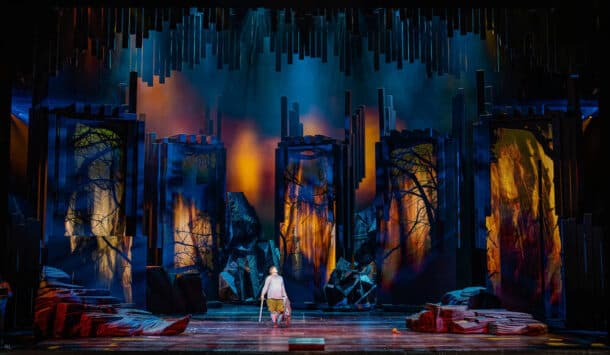
Daniel Brenna (Siegfried) from Finnish National Opera © Ralph Larmann
Siegfried arrives at Fafner’s cave where Woton the Wanderer, who wants to see the battle, and Alberich, who originally stole the gold that made the ring from Rhinemaidens but lost it all to Wotan, are also waiting.
With his horn call, Siegfried has awoken Fafner, who soon emerges.
He’s defeated by Siegfried and in his last moments, warns Siegfried about the fatal qualities of the ring.
As Siegfried withdraws his sword, he’s splashed with Fafner’s hot blood and burns himself. He sucks his burn and, in taking in Fafner’s blood, can understand the bird he couldn’t understand earlier. He’d seen Fafner’s ring without interest before but now, on the advice of the bird, keeps the ring.
Mime appears with his congratulatory drink, which Siegfried, now with the dragon’s blood advantage, realizes his danger and kills Mime.

© South China Morning Post
And so the dragon is defeated, his enemies are disposed of, and the naïve Siegfried learns about a new trial he can try: the bird has told him about a woman sleeping on a rock surrounded by magic fire! Off to discover if he can complete his hero’s education by learning fear from this woman, Siegfried sets off again on his next adventure.
And so we look at Chinese New Year 2024: the Year of the Wood Dragon. The dragon symbolizes power, nobleness, honour, luck, and success. Wood brings vitality and creativity. This is the year for people who want to change the world. The year for perfectionists who are goal-oriented. It’s been 60 years since our last Wood Dragon year, so look around carefully for the last set of goal-oriented perfectionists born as Wood Dragons. They include Boris Johnson and Keanu Reeves, actress Sandra Bullock and vice-president Kamala Harris, musicians Robert Trujillo of Metallica and Eddie Vedder of Peal Jam – it should make for an interesting year!
The Ultimate Vivaldi Quiz
The Ultimate Vivaldi Quiz
Antonio Lucio Vivaldi: an Italian composer, virtuoso violinist and impresario of Baroque music. You may know his most famous work, but how much do you know about his life, family and death?
Thursday, February 1, 2024
Vaughan Williams: 15 facts about the great composer
Best known for The Lark Ascending, Ralph Vaughan Williams wrote nine symphonies, operas, film scores and was an avid collector of English folk songs.
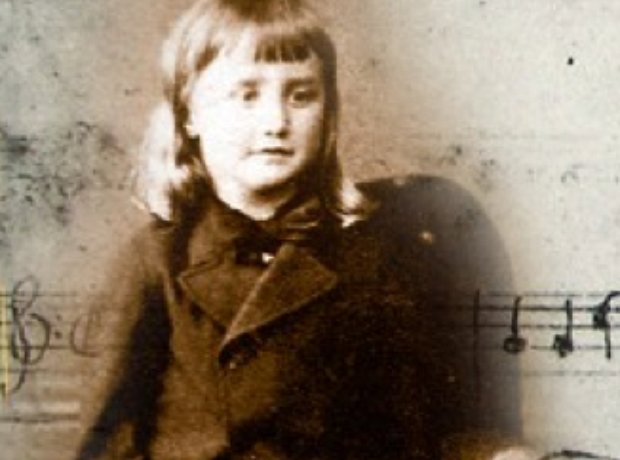
1. The young Ralph Vaughan Williams
Born in the village of Down Ampney, Gloucestershire, Ralph Vaughan Williams was related to Charles Darwin (Ralph's great-uncle) and the ceramics giant Josiah Wedgwood (his great-great-grandfather). Young Ralph studied piano and violin and collected traditional folk songs from an early age. These tunes went on to inspire many of his subsequent works.
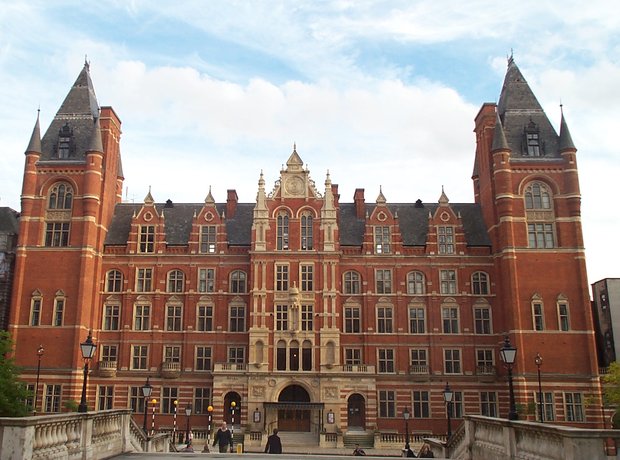
2. At the Royal College of Music
Vaughan Williams studied at the Royal College of Music in London, pictured, alongside Gustav Holst and Leopold Stokowski. He also spent a short time continuing his studies in Berlin with Max Bruch.
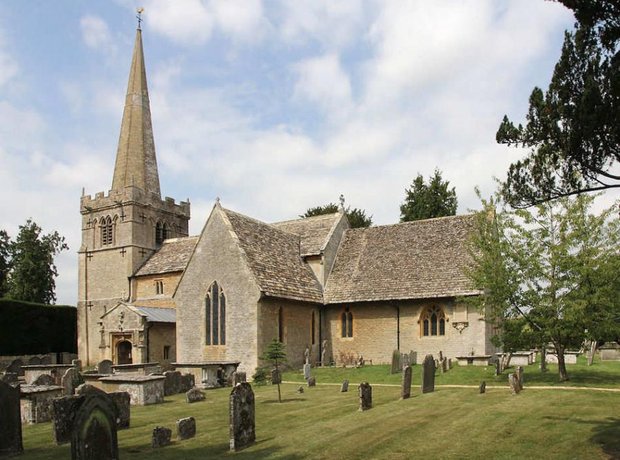
3. A Pilgrim's Progress
The composer's father Arthur was ordained vicar of All Saints church in Down Ampney, pictured. Despite being agnostic, Vaughan Williams edited The English Hymnal in 1904, composed some stunning Christian choral music, and wrote an opera of The Pilgrim’s Progress.
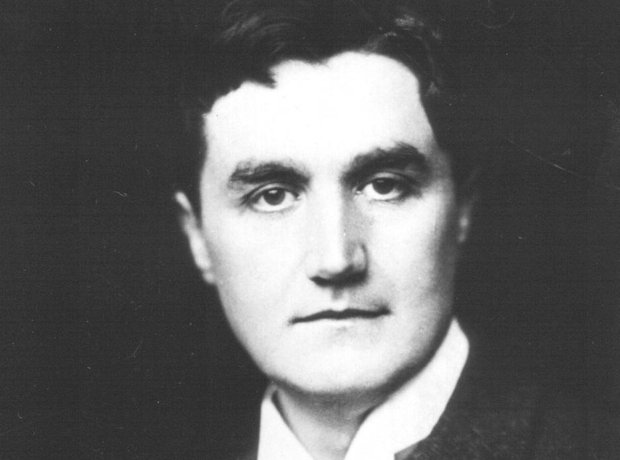
4. Vaughan Williams - A committed socialist
The composer never took his privileged background for granted and worked all his life for democratic and egalitarian ideals. He viewed music as being part of everyone’s everyday life, rather than being the preserve of an elite.
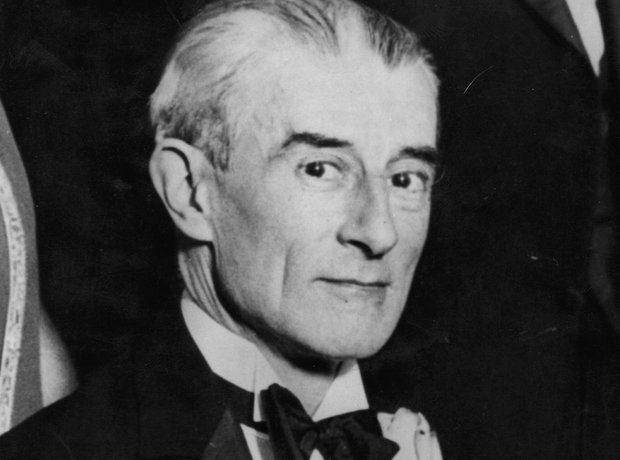
5. Influenced by Ravel
In 1907-1908, Vaughan Wiliams studied orchestration in Paris with Ravel. It inspired one of his most fruitful periods of composition. 1910 saw the premieres of his A Sea Symphony and the Fantasia on a Theme of Thomas Tallis.
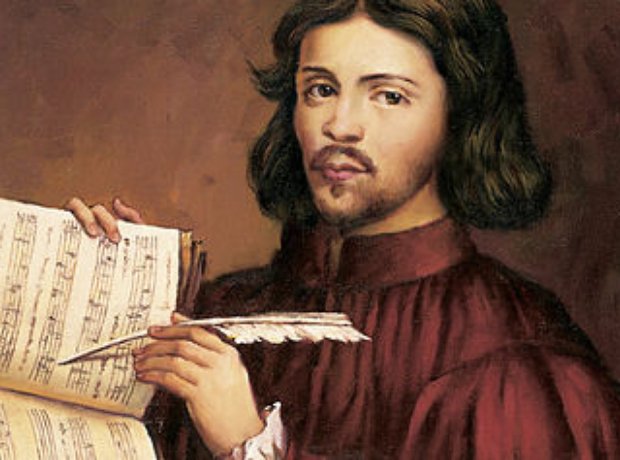
6. Fantasia on a Theme of Thomas Tallis
The theme from Fantasia on a Theme of Thomas Tallis, pictured, was discovered by Vaughan Williams when he was commissioned to put together the 1906 edition of the English Hymnal. His orchestration of it resulted in an unmistakably British sound and has remained one of his most popular pieces.

7. The Lark Ascending
Vaughan Williams’ most popular piece, The Lark Ascending, was written in 1914 but the outbreak of World War I meant he had to put its premiere on hold. It was given in 1921 by the violinist Marie Hall – the woman for whom Vaughan Williams had written it.
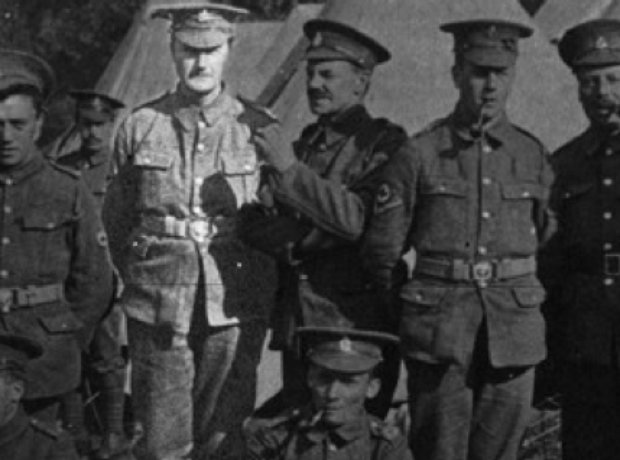
8. Vaughan Williams at war
Aged 41 when World War I began, Vaughan Williams served in France and Salonika. Prolonged exposure to gunfire began a process of hearing loss that eventually caused severe deafness in his old age.
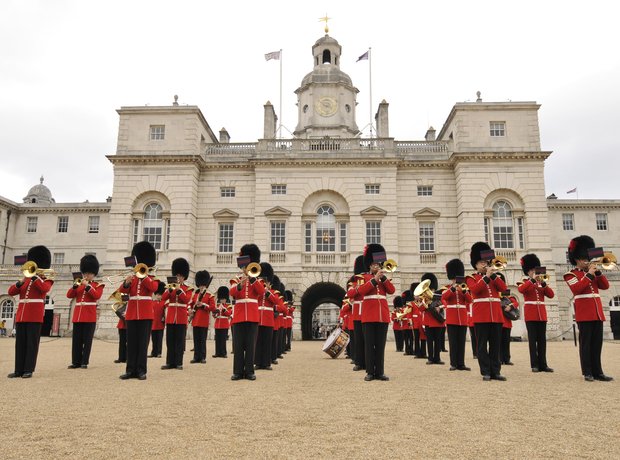
9. English Folk Songs Suite
Vaughan Williams was rather sentimental about military bands which he recognized as being crucially important to the UK’s cultural and community life. So in 1923 he composed English Folk Songs Suite for them.
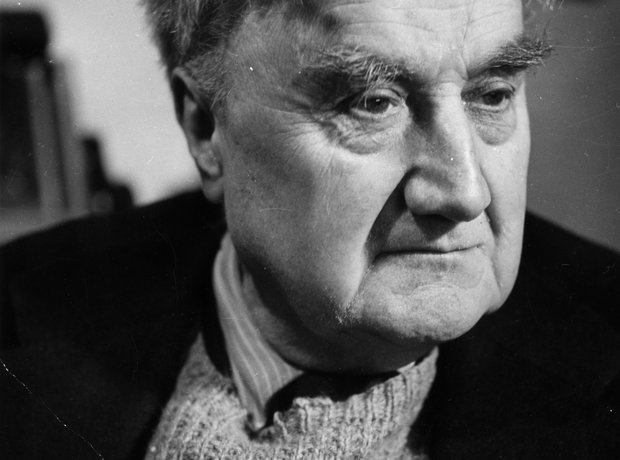
10. A renaissance in old age
The composer conducted the London Philharmonic Orchestra in the premiere of his Symphony No.5, dedicated to Sibelius, on 24 June 1943. It offered calming relief from the rigors of London life during the Second World War. As he was already 70, many considered the symphony to be his swan song but Vaughan Williams entered another period of experimental compositions.
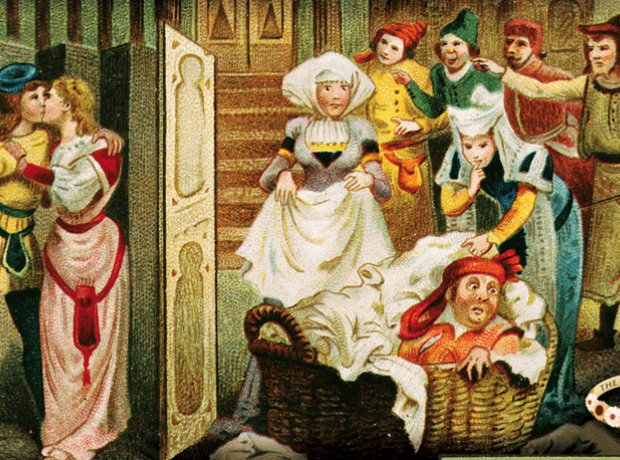
11. Fantasia on Greensleeves
The four-minute long Fantasia on Greensleeves appeared originally in Vaughan Williams's 1928 opera Sir John in Love. The piece also incorporates a folk song called ‘Lovely Joan’ which Vaughan Williams came across in Sussex.
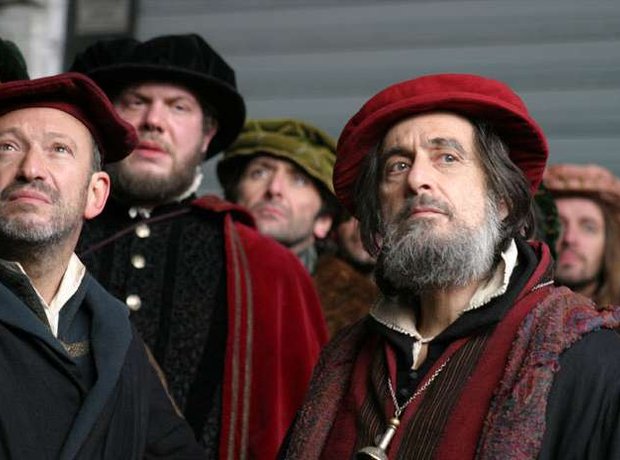
12. Serenade to Music
Vaughan Williams' Serenade to Music for 16 vocal soloists and orchestra was composed in 1938. The text is adapted from a discussion about music and the music of the spheres in Act V of Shakespeare’s The Merchant of Venice, pictured.
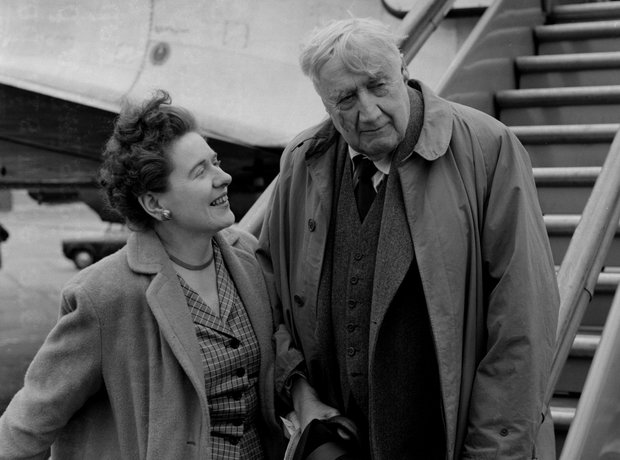
13. Ursula and Ralph Vaughan Williams
Vaughan Williams was married first to Adeline Fisher. After her death in 1951, he married poet Ursula Wood, pictured, who worked on the libretti for his choral work The Sons of Light as well as the opera The Pilgrim's Process and a Christmas cantata, Hodie.
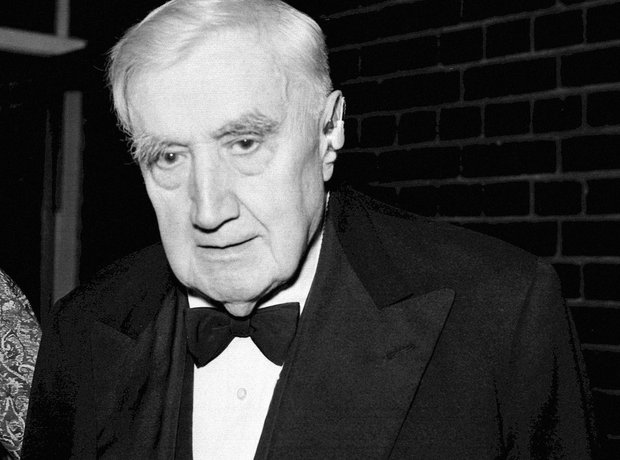
14. Final days
Vaughan Williams was still composing great music into his 80s. At the age of 85, he was set to supervise the first recording of his Ninth Symphony with Sir Adrian Boult conducting. But his death on 26 August 1958, the night before the recording sessions were to begin, prompted the conductor to announce to the musicians that their performance would be a memorial to the composer.
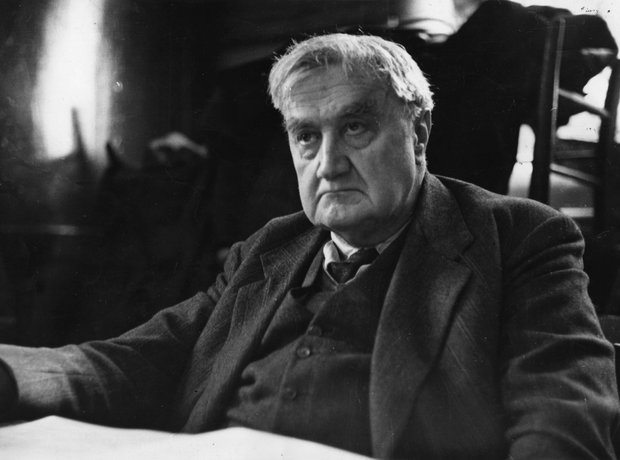
15. Ralph Vaughan Williams' popularity increases
Since Classic FM began broadcasting in 1992, the popularity of Vaughan Williams has grown steadily each year with The Lark Ascending often topping the annual Hall of Fame poll from 2007 onwards.


